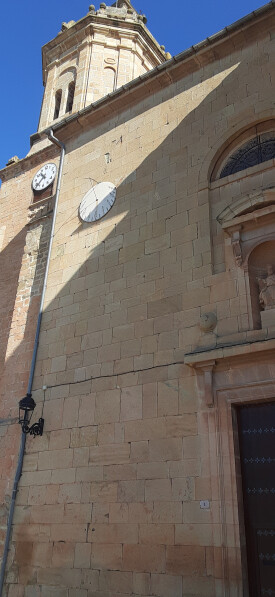Camino 4: Rain
“Back home it is 20 degrees,” which means 68; he measures temperature in the funny way they do in the Netherlands. “And sunny. And here I am, bicycling through this s—ty weather. Europeans come to Spain for the warmth and sunshine. It’s crazy.”
It was a crazy day. The second day of rain, which means wet shoes, wet feet, wet almost everything. The wind was strong and the temperature was about 2 according to the locals (i.e., 35). I kept feeling sleet hitting my face. What was the landscape? This was a part of the Camino that is described as flat and expansive and unending, more than 10km (i.e., 6 miles) without a place to stop (unless you like stopping at a picnic table under a thin tree).
I had opened the door to the bar, stepped inside, put down my walking poles, struggled to get my wet gloves off my frozen fingers. He had greeted me. I had tried to smile. He looked concerned. “Are you all right?" I was all right. Shedding my rain jacket, ordering a jamon y queso sandwich, I came back to his table. I took off my shoes, took out my orthotics, peeled off my soaked socks, and felt wonderful.
He was a bit less than half my age, bicycling the Camino because he didn’t have the time to do otherwise. He had finished a very good job with the Salvation Army and was about to start his dream job. All his work has been to help people get along together, and soon he will be doing that with representatives of labor and management in various companies. We talked a lot about the difficulties people, and peoples, have getting along. It is very important to talk. One question he has asked couples is: Will this keep you awake five years from now? It helps put an immediate conflict in perspective to step back and think in terms of years.
Of course we mentioned Ukraine. There are times when talking comes to an end and war must be engaged. But they are rare times and it is preferable to keep talking if one can. That is another version of the five-year question: Is this something over which it is worth going to war?
Well, my socks and shoes were still wet, but my body and soul were refreshed. There is a young man in the Netherlands doing good things in the reconciliation business. He may not know it, but reconciliation is the true point of the Gospel. I suppose God wants us all to be in the reconciliation business.
Photo of an irrigation canal on a drizzly day.




